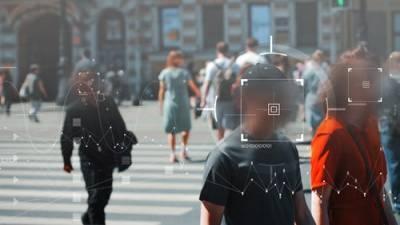 In our modern world, people are constantly monitored throughout their daily lives, including by cameras in public locations, as well as their own smartphones and other electronic devices. Many people do not realize the extent of the information about them that is being collected, analyzed, and resold, including how photos or other data may be accessed by law enforcement and used to investigate and prosecute crimes. Facial recognition technology has come under fire in recent years, and privacy and criminal justice advocates have raised concerns about how police officers and other law enforcement officials may use these systems to identify suspects, make arrests, and prosecute people for criminal offenses.
In our modern world, people are constantly monitored throughout their daily lives, including by cameras in public locations, as well as their own smartphones and other electronic devices. Many people do not realize the extent of the information about them that is being collected, analyzed, and resold, including how photos or other data may be accessed by law enforcement and used to investigate and prosecute crimes. Facial recognition technology has come under fire in recent years, and privacy and criminal justice advocates have raised concerns about how police officers and other law enforcement officials may use these systems to identify suspects, make arrests, and prosecute people for criminal offenses.
The facial recognition system that is most commonly used by law enforcement is provided by Clearview AI. This company has built a database of billions of photos that were gathered from the internet and other sources, including photos people have posted to social media. Its systems use artificial intelligence (AI) algorithms to compare images of criminal suspects with photos in the database. When a person is identified in this manner, police officers may investigate them further, arrest them, and pursue criminal charges.
Clearview's practices have come under fire, since people whose photos were included in the database did not give consent to have their photos used in this manner or to have their information turned over to law enforcement. In some cases, people have been falsely identified by facial recognition systems, leading to wrongful arrests and criminal charges, as well as significant financial and emotional difficulties.
A study on facial recognition technology by the Georgetown Law Center on Privacy & Technology identified a number of concerns about how these systems are used by law enforcement. Even though some police departments have stated that they only use facial recognition to generate leads in criminal investigations, there are many instances in which identifications made by facial recognition have been used as probable cause to perform arrests, even when there is no other evidence that connects a person to an alleged crime.
Racial bias is another significant concern in these cases. Facial recognition systems are more likely to misidentify darker-skinned people, and there have been several notable instances in which Black men and other people of color have been wrongfully arrested. This issue can exacerbate the inequities that minorities already face in the criminal justice system, and the continued use of facial recognition technology is likely to result in more wrongful arrests or convictions.
While facial recognition is supposed to provide an impartial method of comparing images and identifying suspects, biases still exist in these systems. The AI algorithms used to identify suspects are often based on faulty assumptions, and they are likely to perpetuate the patterns that have led to injustice in the past. Police officers bring their own assumptions to a case, especially when reviewing photos and considering information such as facial expressions and behavioral characteristics. To make matters worse, defendants may not be made aware of how facial recognition was used in investigations, and they may be unable to challenge this type of evidence.
Since facial recognition and other technological systems can play a crucial role in many modern criminal investigations, defendants will need to understand how to address these issues and protect their rights. At Woolf & Ross Law Firm, LLC, we work to ensure that people who have been accused of crimes can respond to concerns about the investigative methods used in their cases and challenge the evidence against them. To schedule a free consultation and learn how we can help defend against criminal charges, contact our Hartford criminal defense attorney at 860-290-8690.
Sources:
https://www.themarshallproject.org/2023/04/08/police-artificial-intelligence-facial-recognition-clearview-ai-social-media
https://www.law.georgetown.edu/privacy-technology-center/publications/a-forensic-without-the-science-face-recognition-in-u-s-criminal-investigations/
https://www.wired.com/story/wrongful-arrests-ai-derailed-3-mens-lives/
 50 Founders Plaza
50 Founders Plaza

